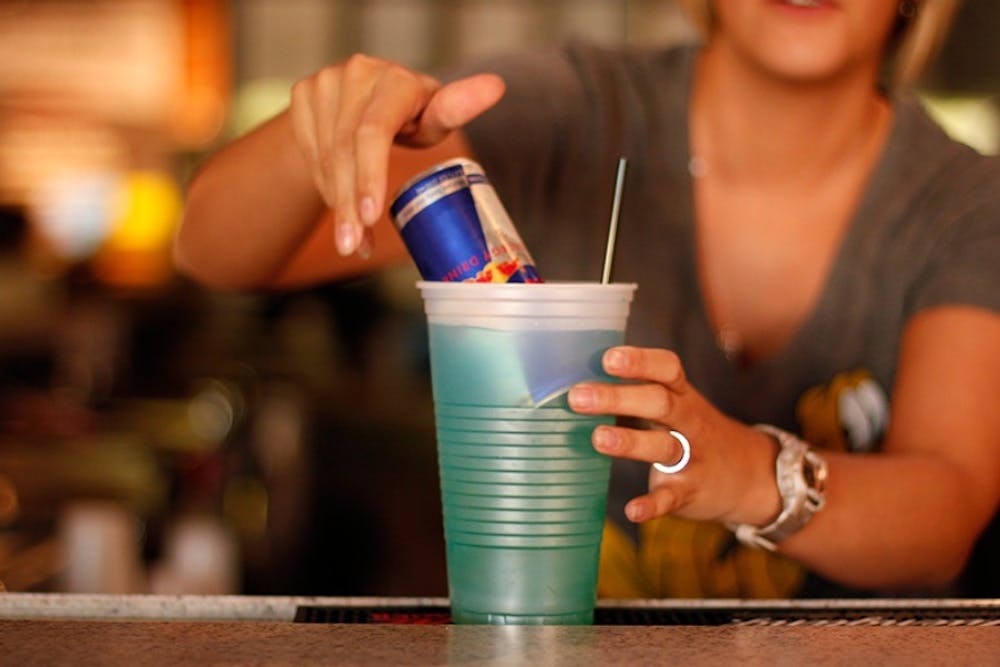By Lisa Trowbridge, For The Miami Student
"Trashcans," and other signature Uptown drinks, are made from a potent combination of alcohol and energy drinks.
These sugary, highly caffeinated drinks, when paired with alcohol, allow students to drink more and for longer into the night.
This increase in energy also has negative consequences. The combination of alcohol and caffeine in these drinks can lead to continued drinking and riskier behavior, and could potentially lead to more serious health problems.
Psychology professor Matthew McMurray said drinking caffeinated alcoholic beverages (CABs) is risky because of the way the caffeine, a stimulant, interacts with alcohol, a depressant. Alcohol causes drowsiness and slows reaction times, but with caffeine, these effects are counteracted. Instead of getting tired after a couple drinks, one becomes increasingly active and awake, allowing them to drink more.
"This facilitates the whole concept of binge drinking, which has a slew of known horrible side effects, including leading to addiction," McMurray said.
Although it is unlikely that drinking CABs will lead to alcoholism, it does increase tolerance to alcohol and gives drinkers the energy to continue consuming. This feeling also inhibits drinkers' ability to gauge how drunk they are, causing them to drink more and achieve a higher blood alcohol level more quickly, according to Assistant Director of Student Wellness Leslie Haxby McNeill.
"The caffeine masks the effects of the depressant, so a person who is relying on 'how you feel' to determine how much to drink is going to not have a good understanding of when to stop," said McNeill.
Evidence of this idea was found in another study by professors in the Department of Kinesiology and Health Education at the University of Texas. From a survey, students who drank CABs reported drinking more alcohol and behaving more riskily than students who drank only alcohol.
Drinking CABs can also have more serious health consequences. First-year kinesiology major Nick Williams said the effects the mixture of alcohol and caffeine has on the heart is dangerous.
"Your heart beats really fast, but it should be going slower because of the depressant, so your blood pressure shoots up," Williams said. "Basically, it over-stimulates itself, which could result in a heart attack."
According to McMurray, this happens because of the opposite effects that alcohol and caffeine have on the body, but in small amounts, alcohol can actually behave similarly to caffeine.
Enjoy what you're reading?
Signup for our newsletter
"Alcohol at low doses is actually a locomotor stimulant; it makes you run around more, it makes you more active," McMurray said. "You can see this after one drink, as you tend to be more socially engaged."
But at greater amounts, and with high concentrations of both alcohol and caffeine, there can be consequences.
"The real consequence here isn't necessarily just with the amount of alcohol you consume and the long-term problems," McMurray said, "it's the short-term repercussions that occur because your decision-making is impaired, and you're not aware of it."




